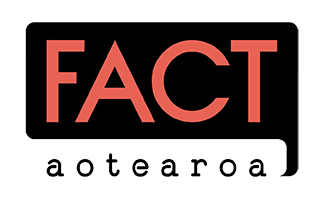
Ballot papers are destroyed 6 months after the election 🤔
The law requires papers to be destroyed a few months after the election – but that’s for a good reason, and it doesn’t make fraud easier. We get to the nitty gritty of why.
The law requires ballot papers to be kept for six months after the official count is complete and then destroyed. The official count can take some time after election day, so it actually takes a bit more than six months from the day before the ballot papers are destroyed. This gives plenty of time for legal challenges and investigations while also meeting the principle that voting is anonymous. The Electoral Act also requires that papers can’t be destroyed if they are part of an investigation or might be needed for an investigation (s189.3).
Making a fuss about ballot destruction without ever explaining why it happens is classic “just asking questions” conspiracy rhetoric – taking a thing that has a reasonable explanation but deliberately not mentioning the explanation so as to imply nefarious forces are at work.
Some people claim ballot papers are destroyed after the election to hide fraud. They point to requirements elsewhere in law to keep records for seven years and ask why ballot papers don’t need to be kept so long.
- It’s true! But not for the reasons some people are touting
- Ballots are kept for a full 6 months
- Candidates can ask for a recount
- Destroying the papers after 6 months is important to protect the secrecy of the vote – having a secret vote prevents bribery and intimidation because no one will know how you voted
Disposing of ballots six months after balances need to protect the integrity of the election with the need to protect voter privacy. Six months is a pretty long time for candidates to ask for a recount or for people to come forward to complain. And interference with ballot papers that affects results should be pretty obvious well within that time.
The thing is, ballot papers are numbered so it is possible for investigators to trace who a paper was issued to. This allows fraudulent votes (like people who voted twice) to be traced and removed, and helps any possible investigation later.
But, that means it would be possible to see how people voted, which is not ok. No one, not your family or your boss or some incoming government that doesn’t like you should be able to tell how you voted. And if it was possible to check how you voted, that would provide more of an incentive for bribery and intimidation. That’s why popular movements in the UK fought for and won the right to a secret ballot in the 19th century. Destroying the papers after the result is clear preserves the secrecy of the ballot. It’s been law in New Zealand for over 100 years and we inherited it from the UK. Far from being a weak point, it’s an important part of our democracy that no one should ever be able to know how you voted.
- The Parliamentary Services web site shows the destruction process: https://www.parliament.nz/en/get-involved/features/what-happens-to-my-ballot-paper-after-the-election/
- The Electoral Commission’s own explanation of what happens to ballot papers https://elections.nz/democracy-in-nz/about-elections/what-happens-to-voting-papers/
- The Electoral Commission on how recounts and electoral petitions work https://elections.nz/democracy-in-nz/about-elections/election-recounts-and-petitions/
- The Electoral Act on disposal of ballots: https://legislation.govt.nz/act/public/1993/0087/latest/whole.html#DLM310019
- Wikipedia on the UK Ballot Act 1872 and why secret voting was needed: https://en.wikipedia.org/wiki/Ballot_Act_1872
Letters & resources



Prebunking election misinformation













